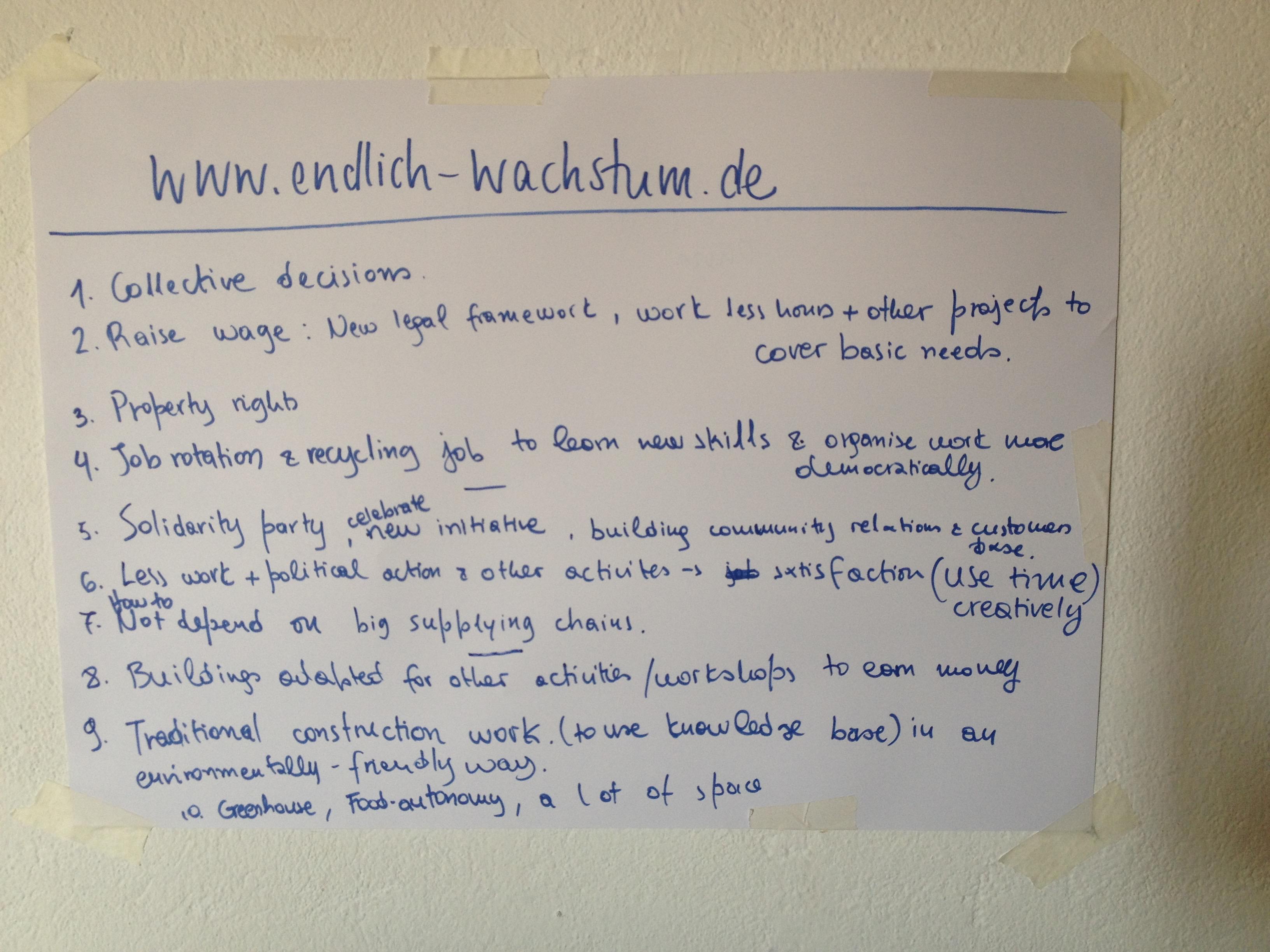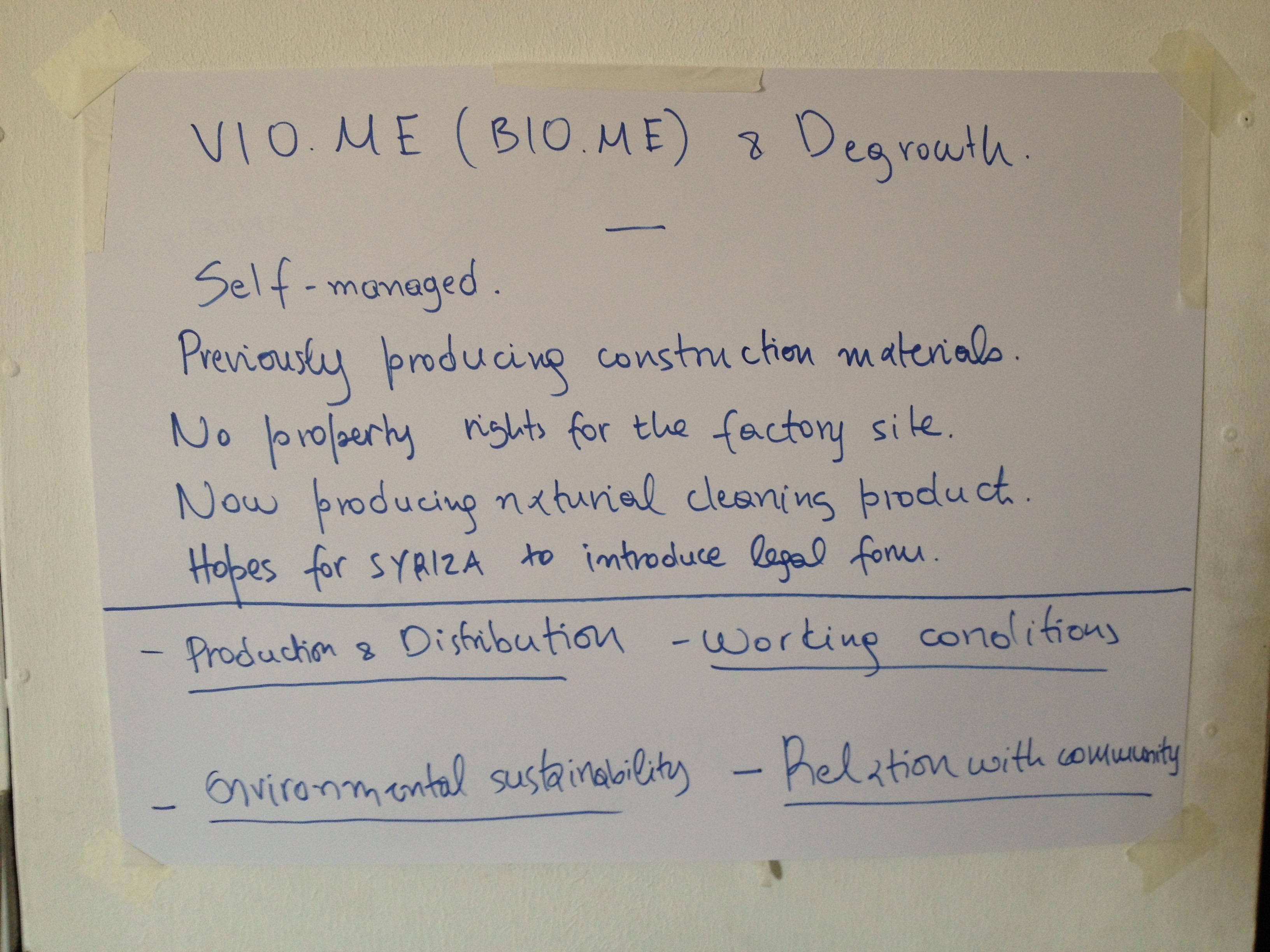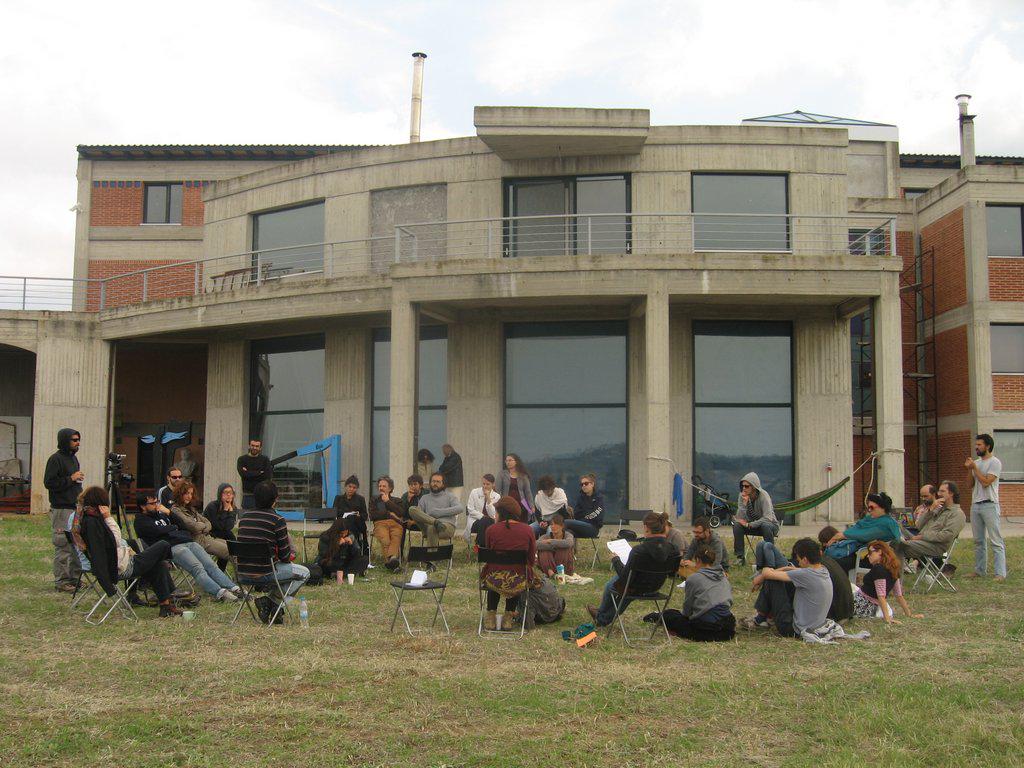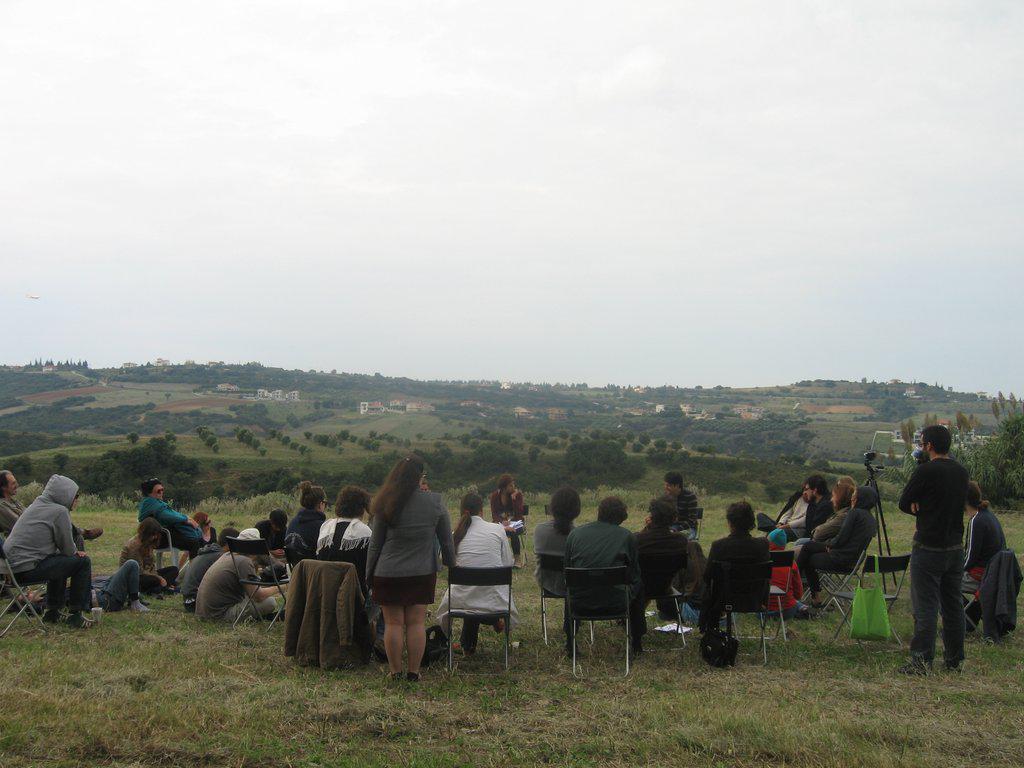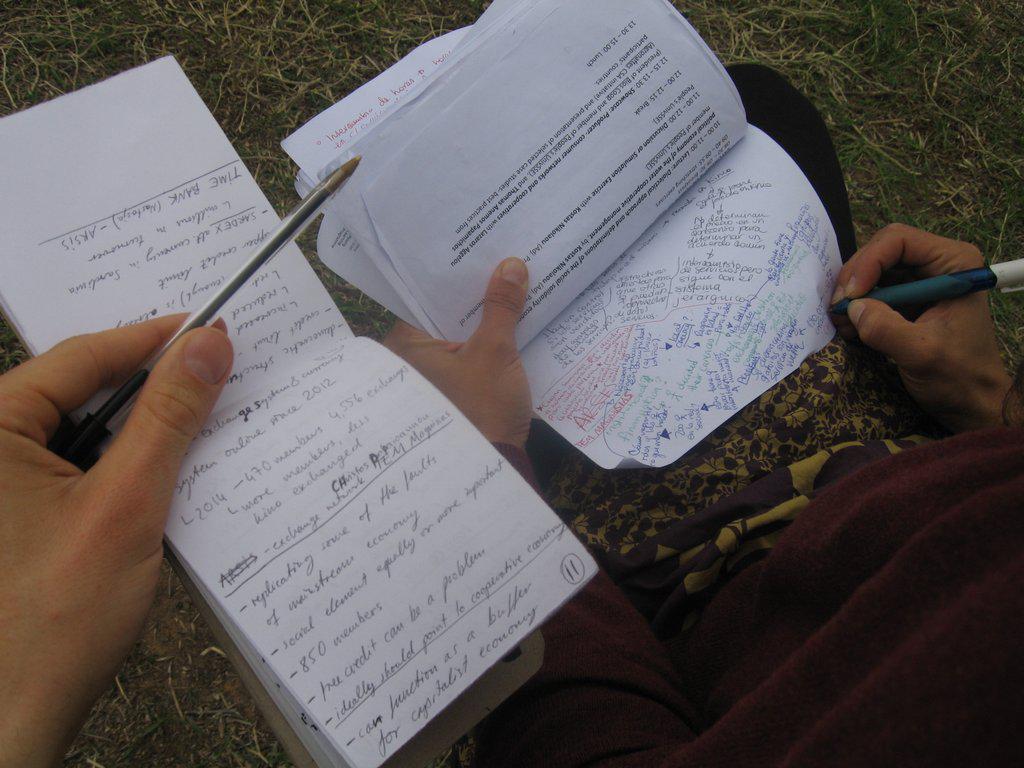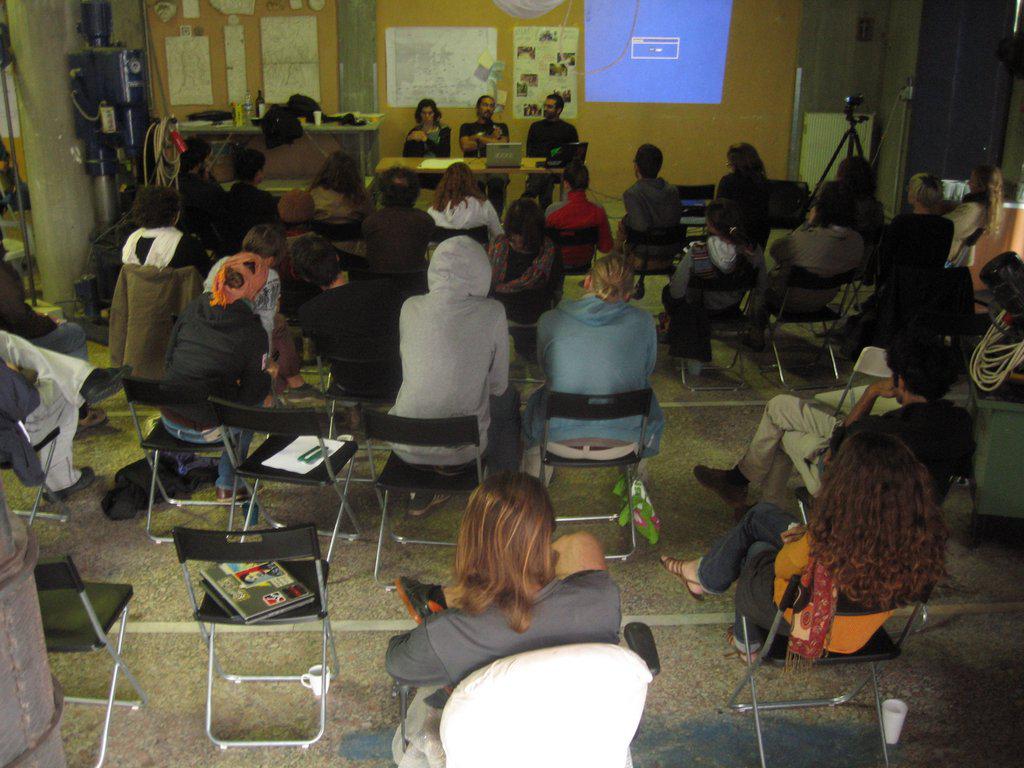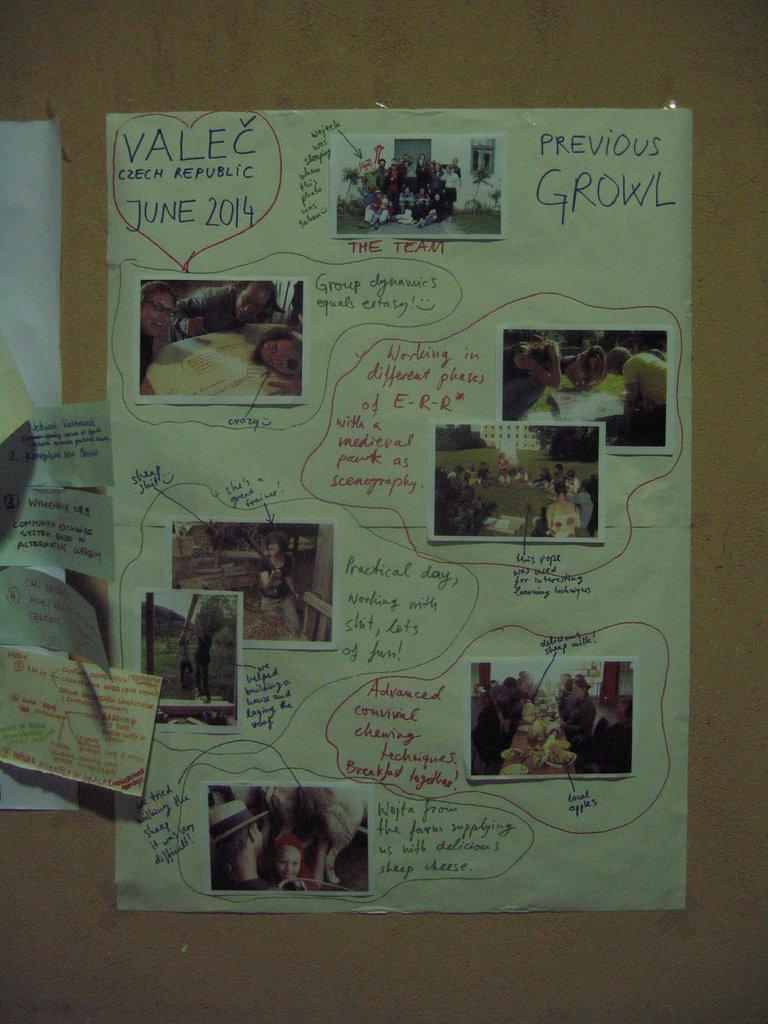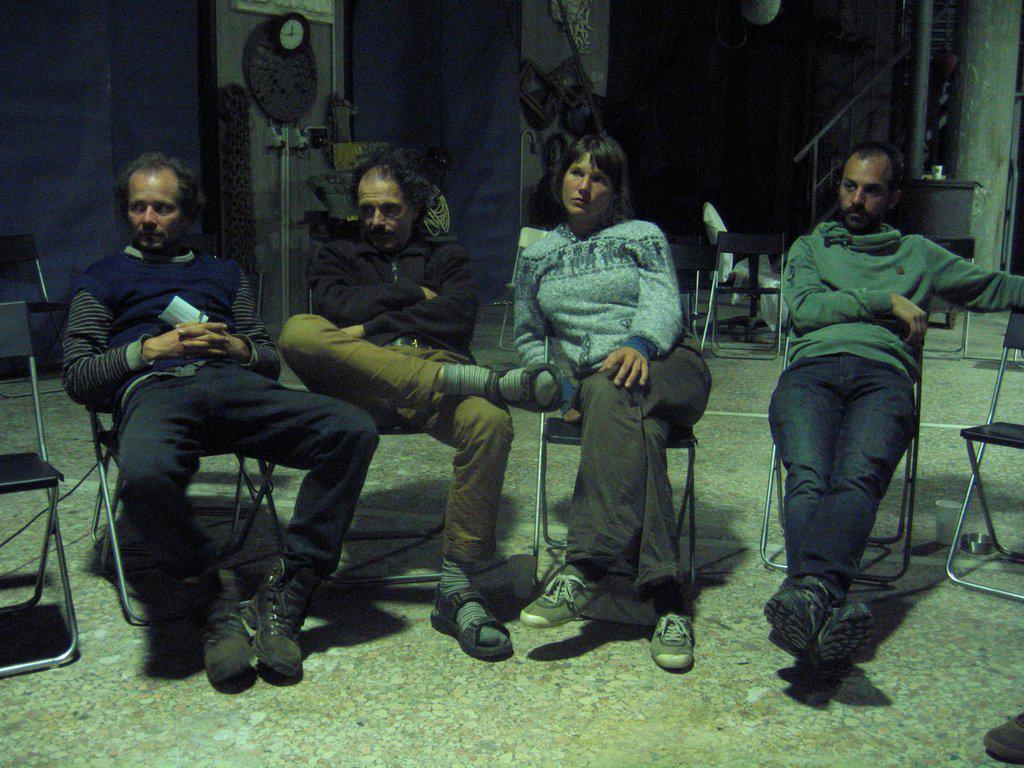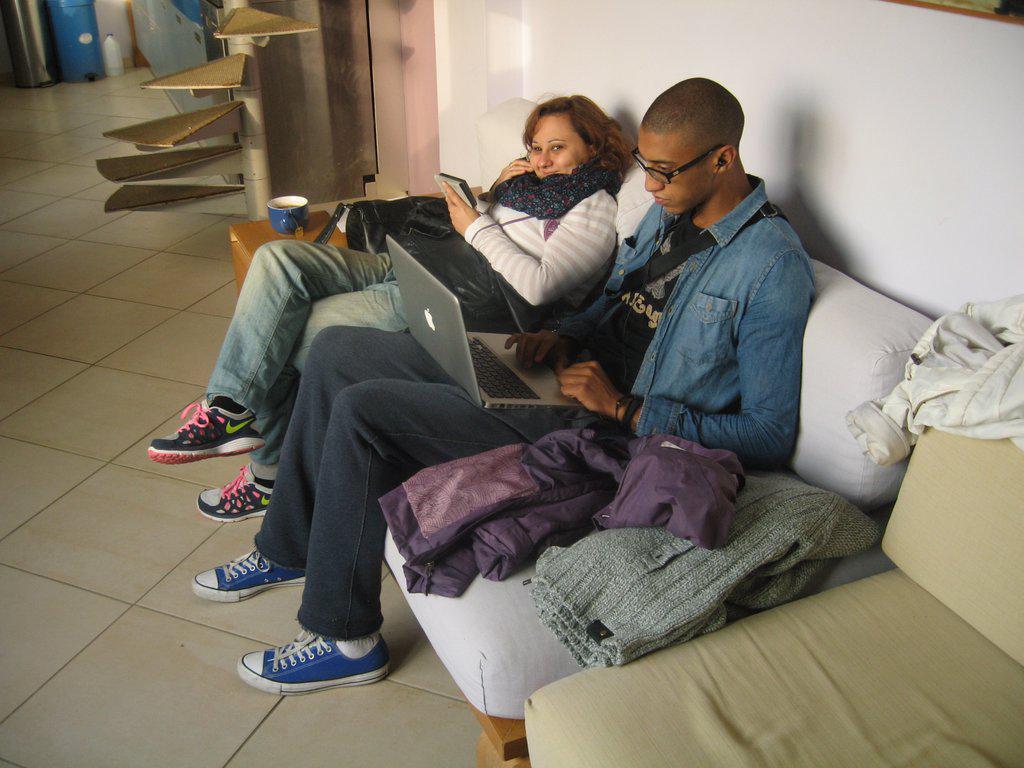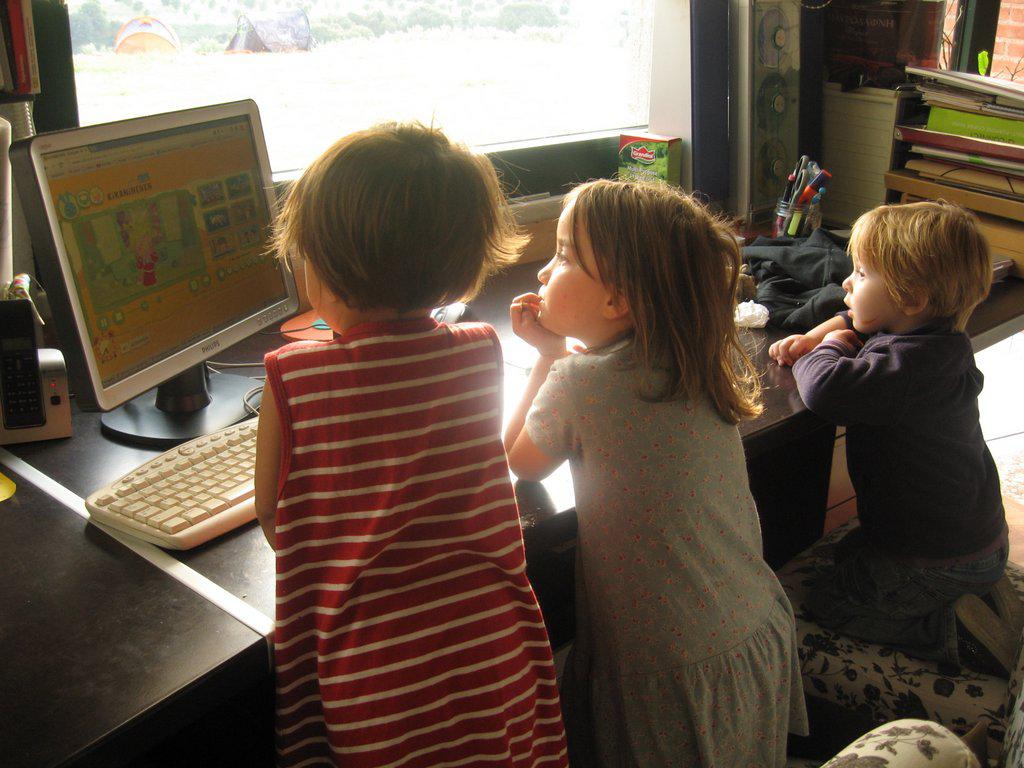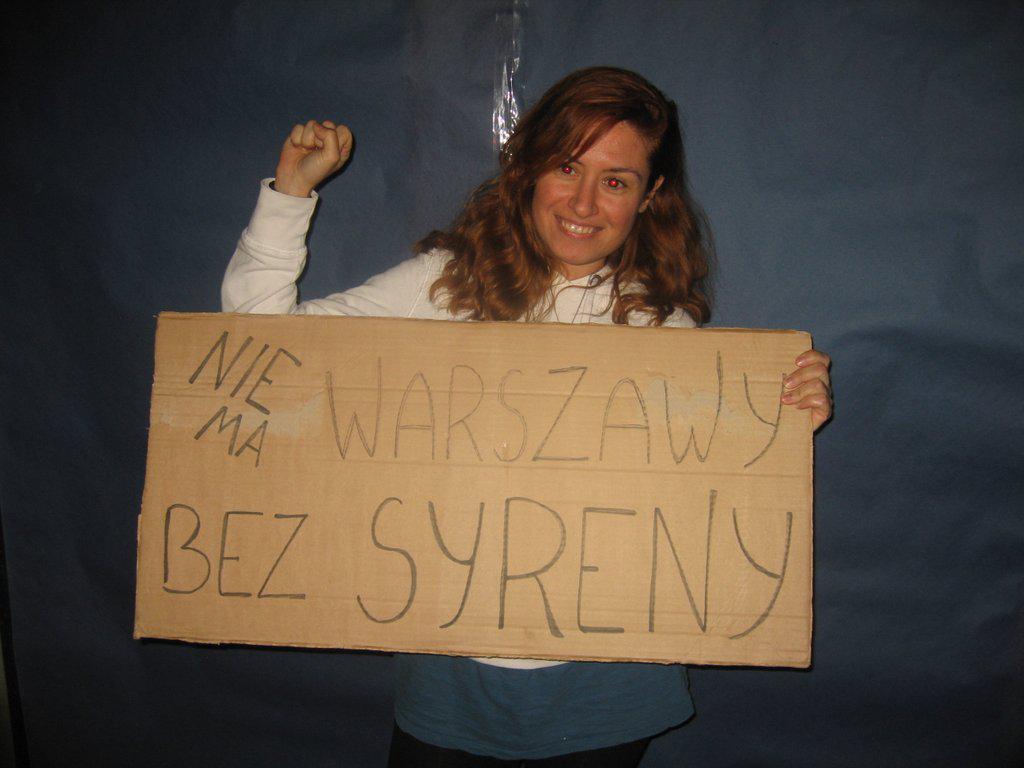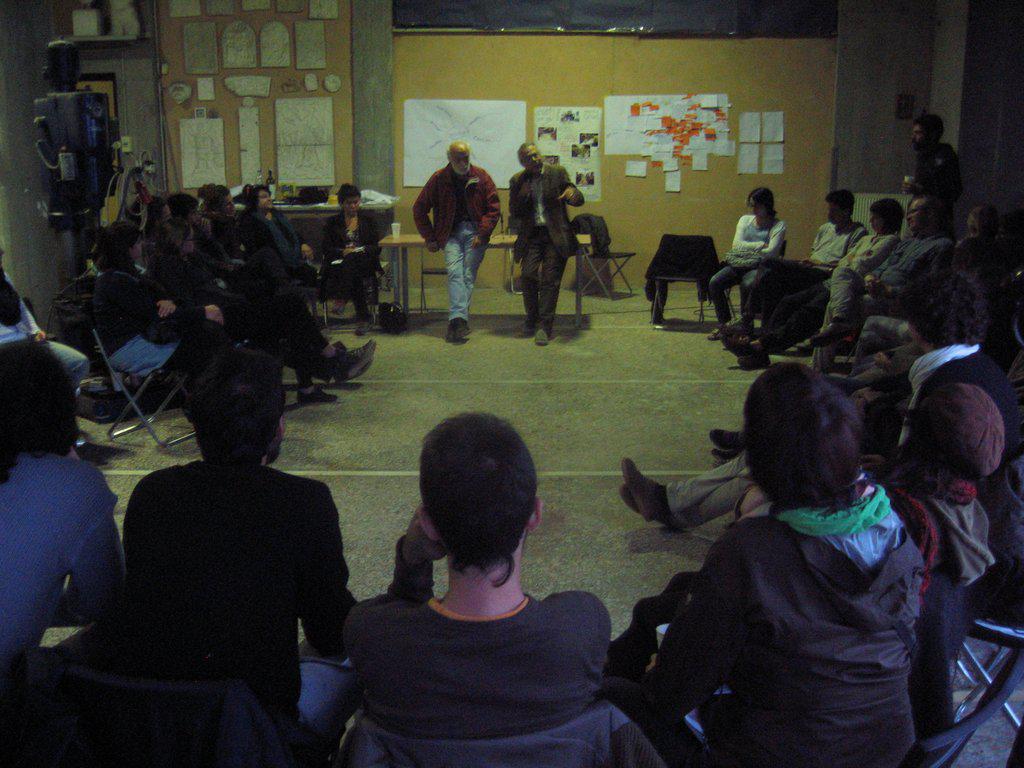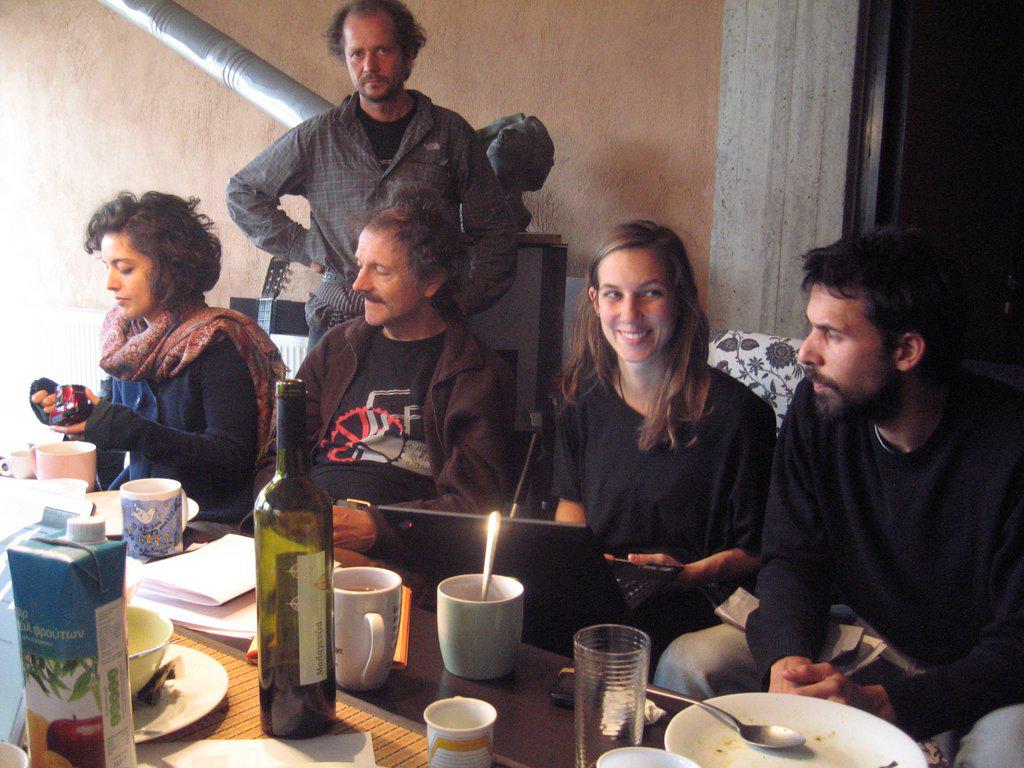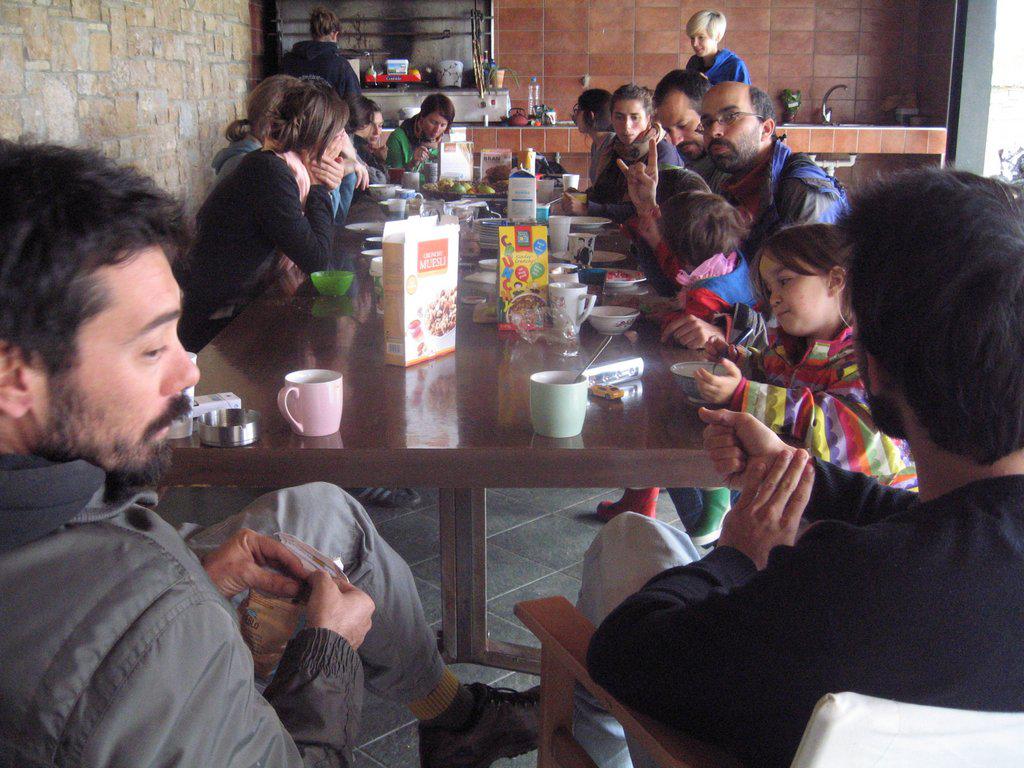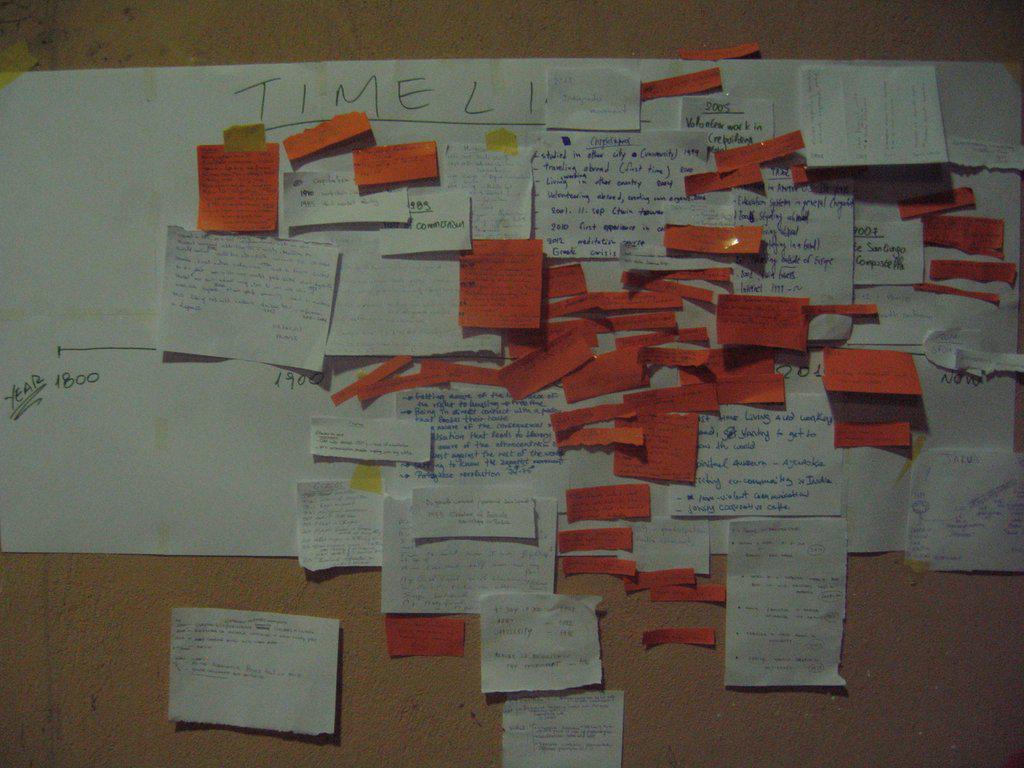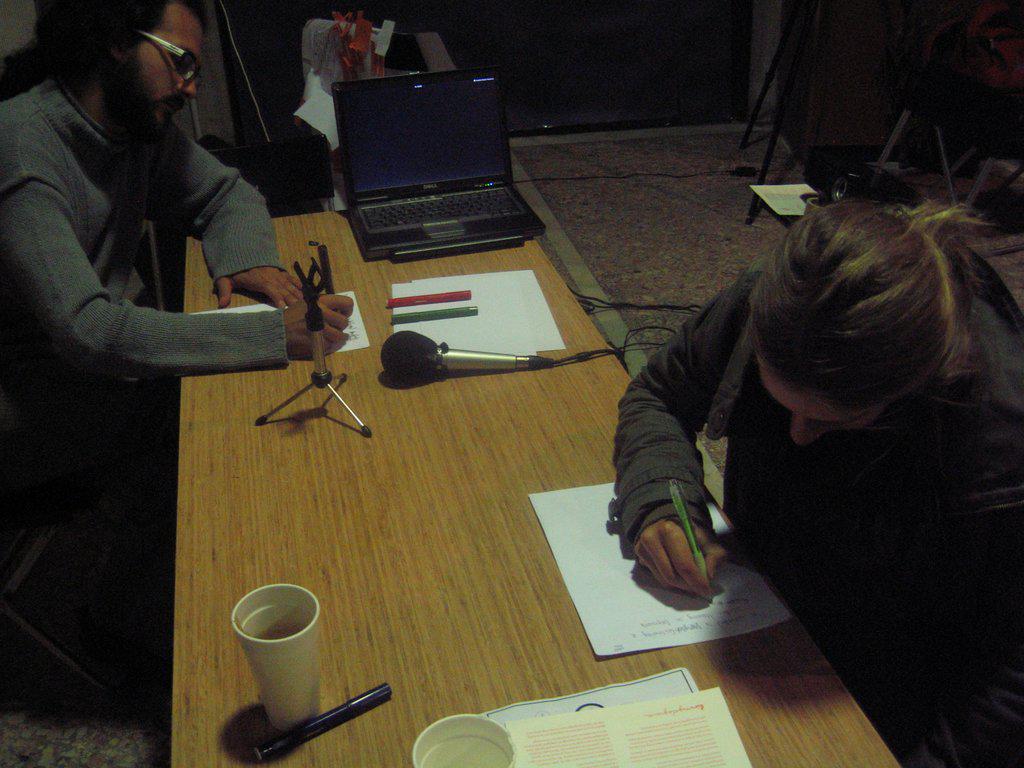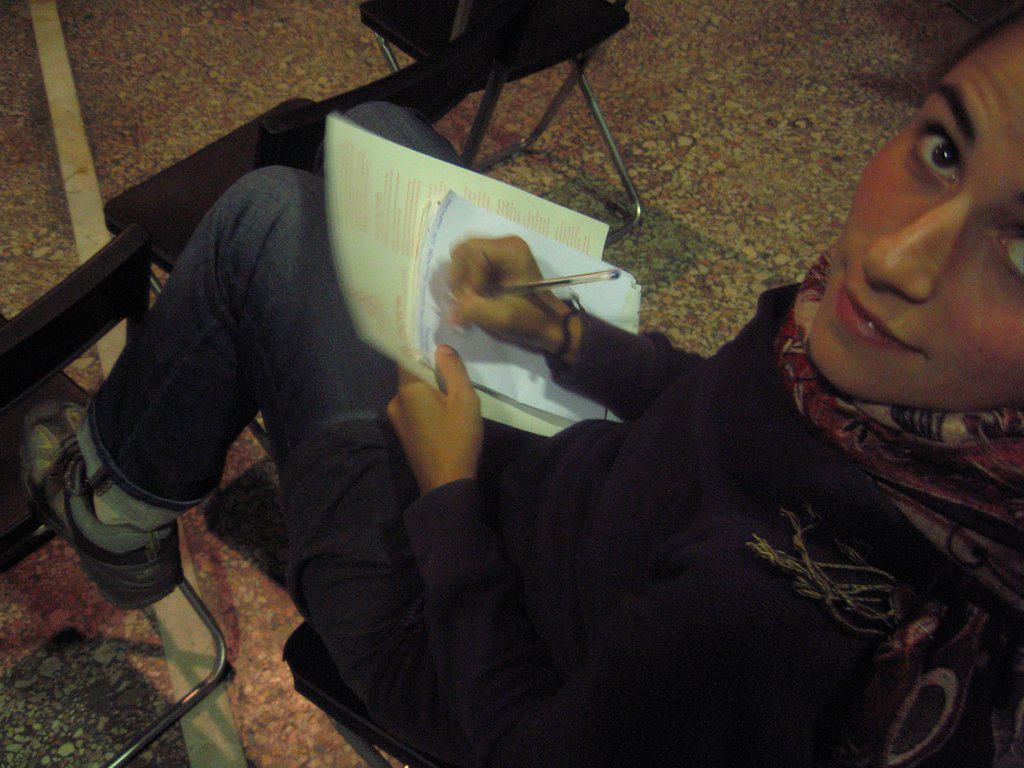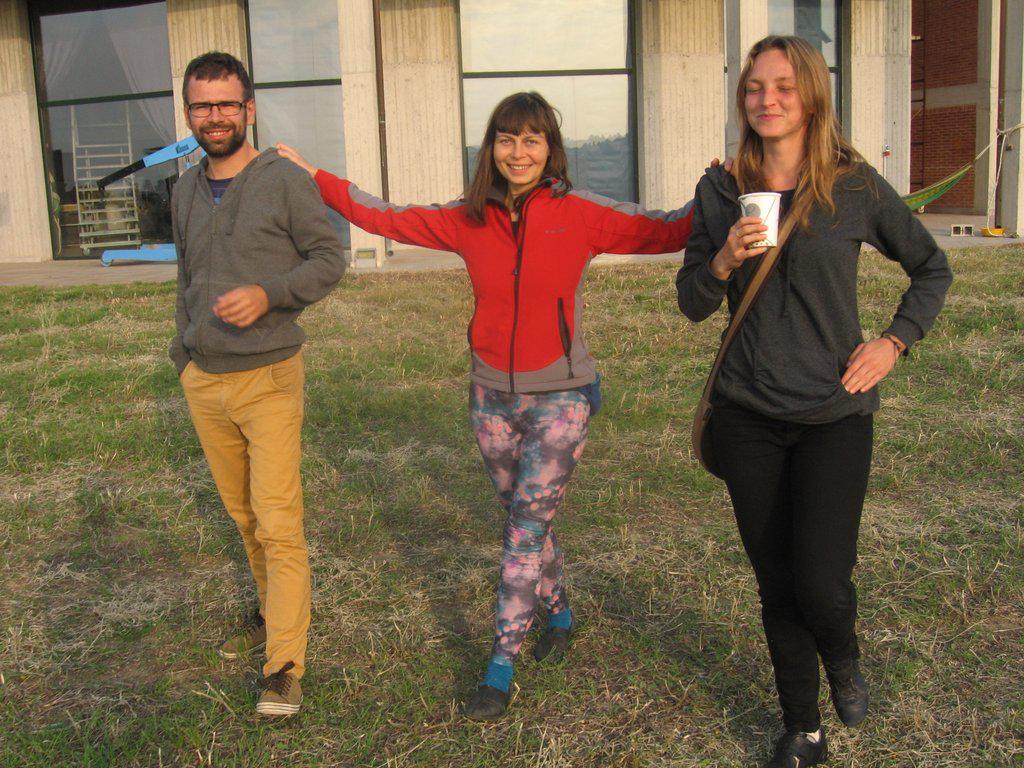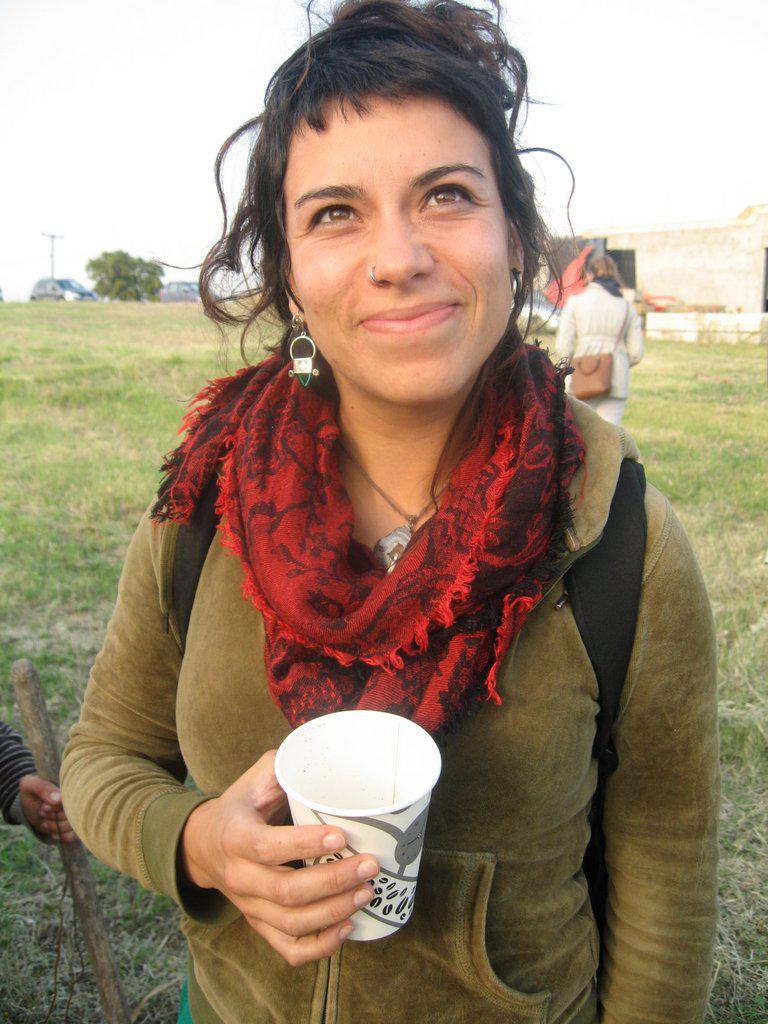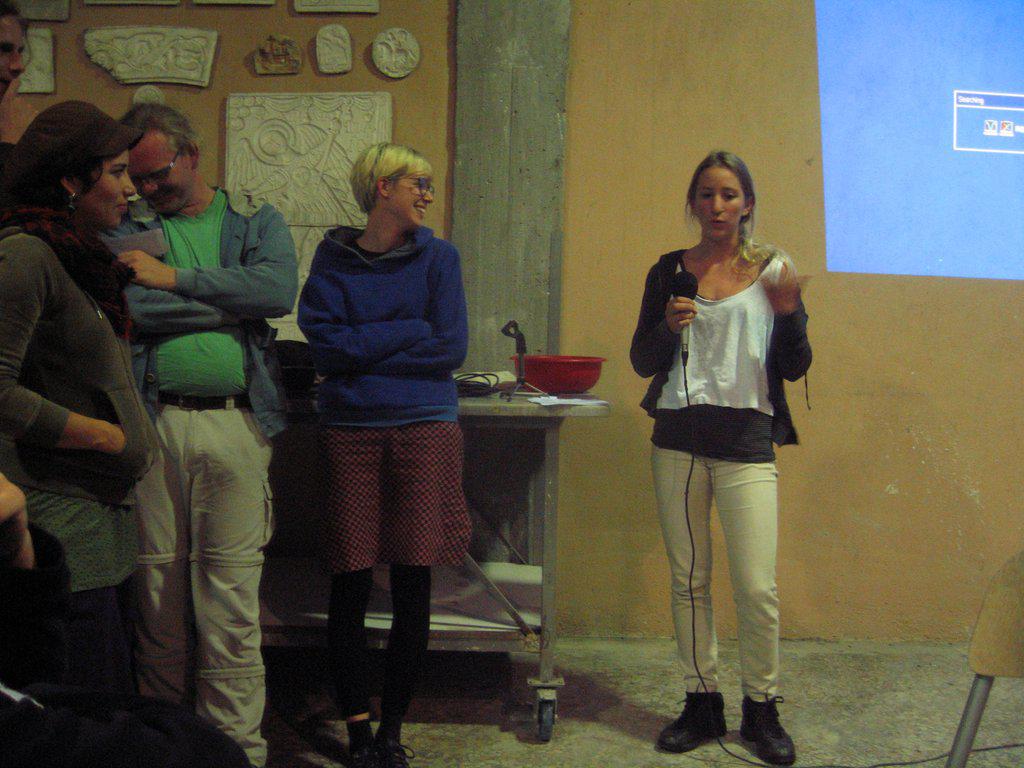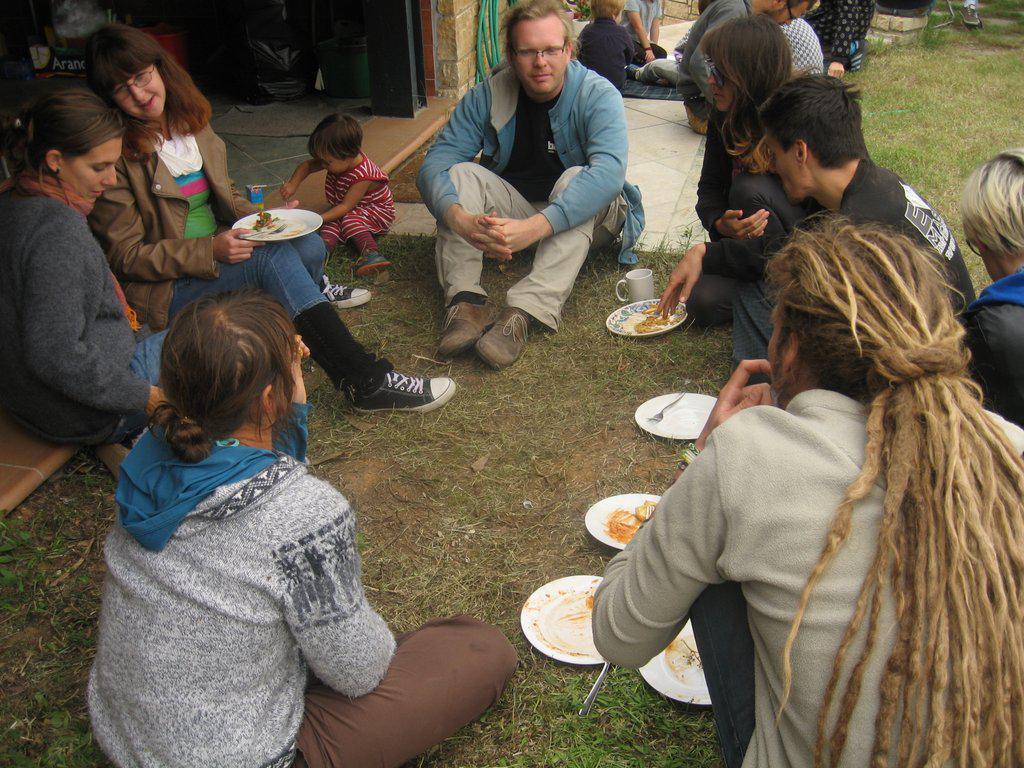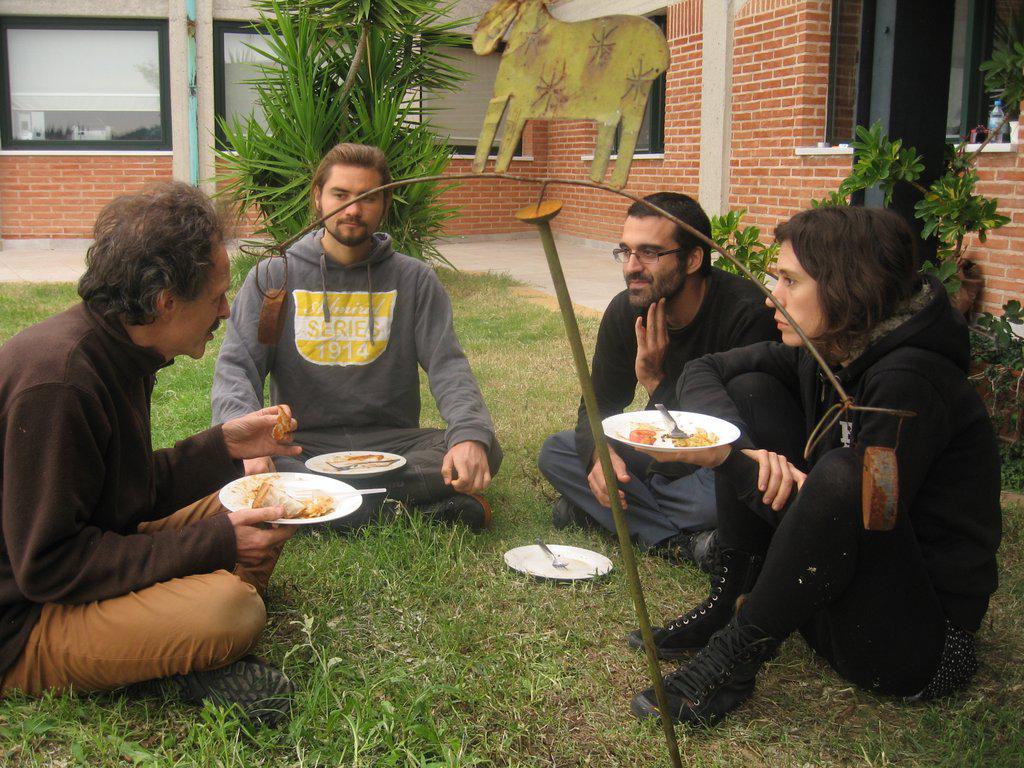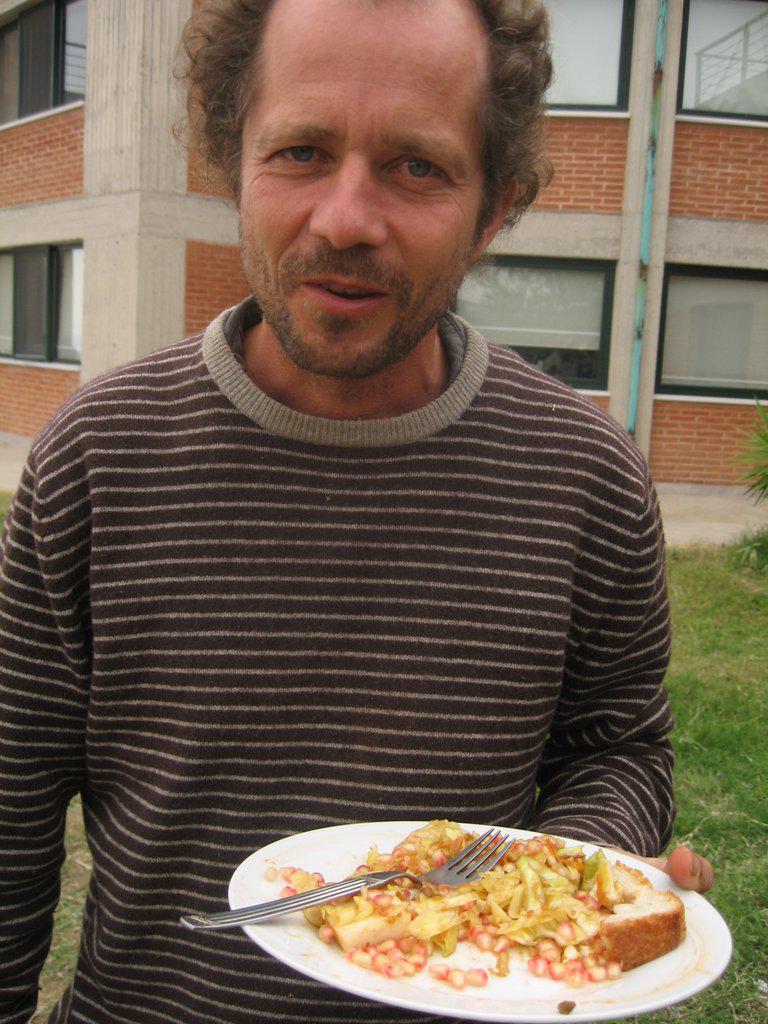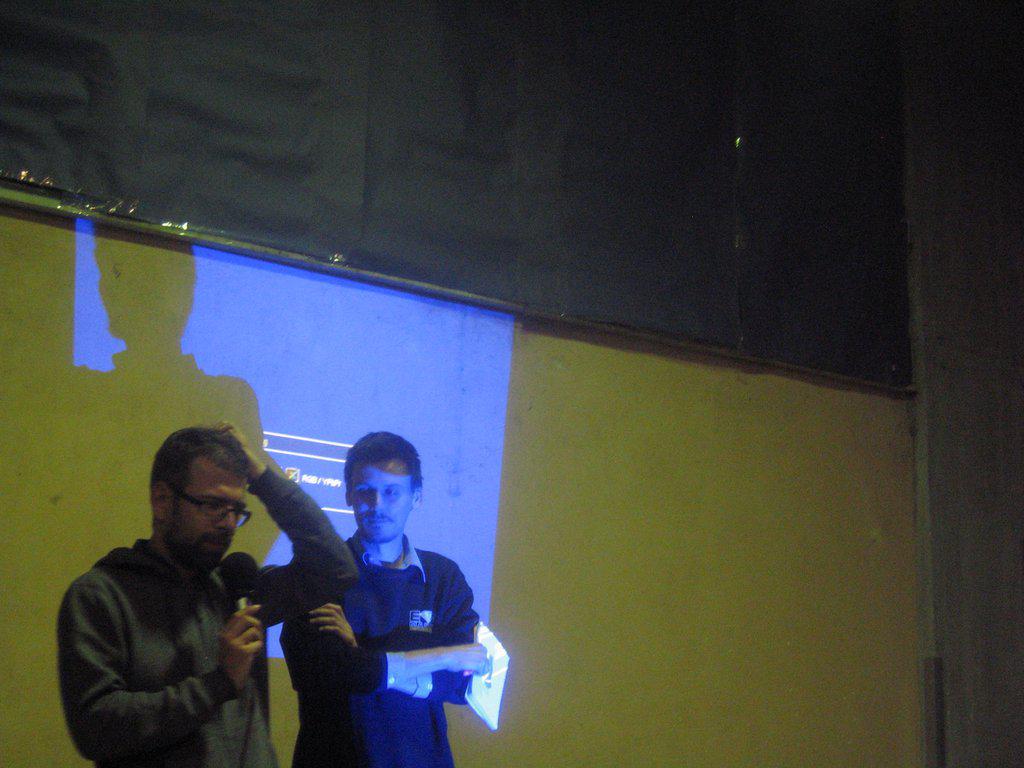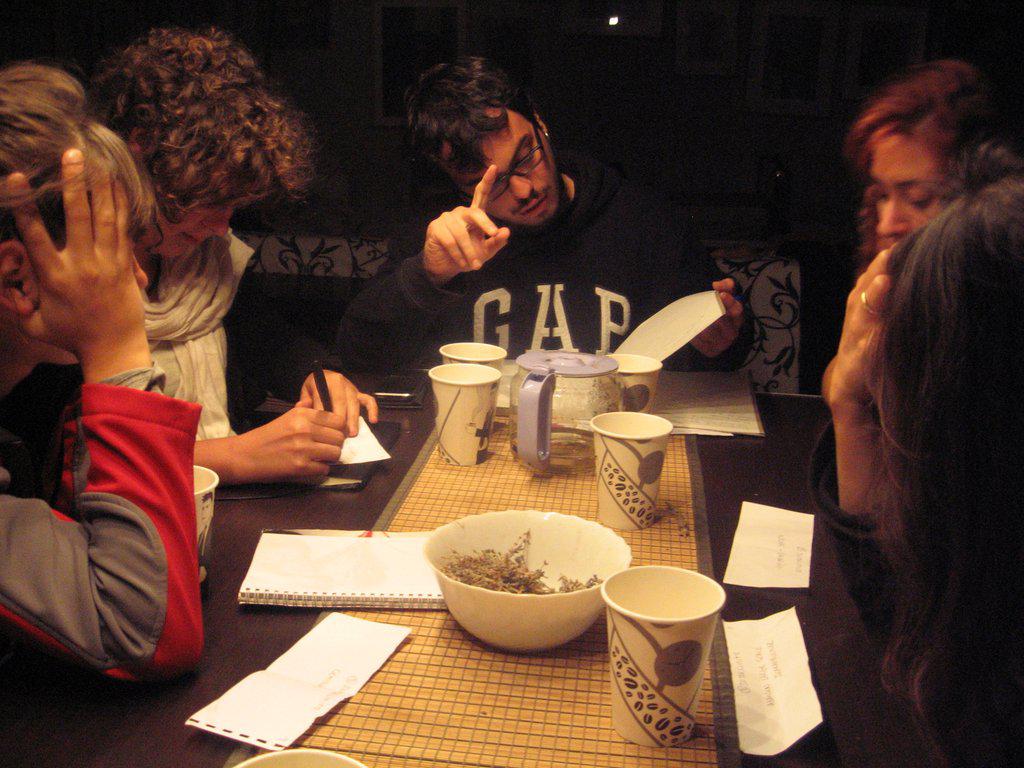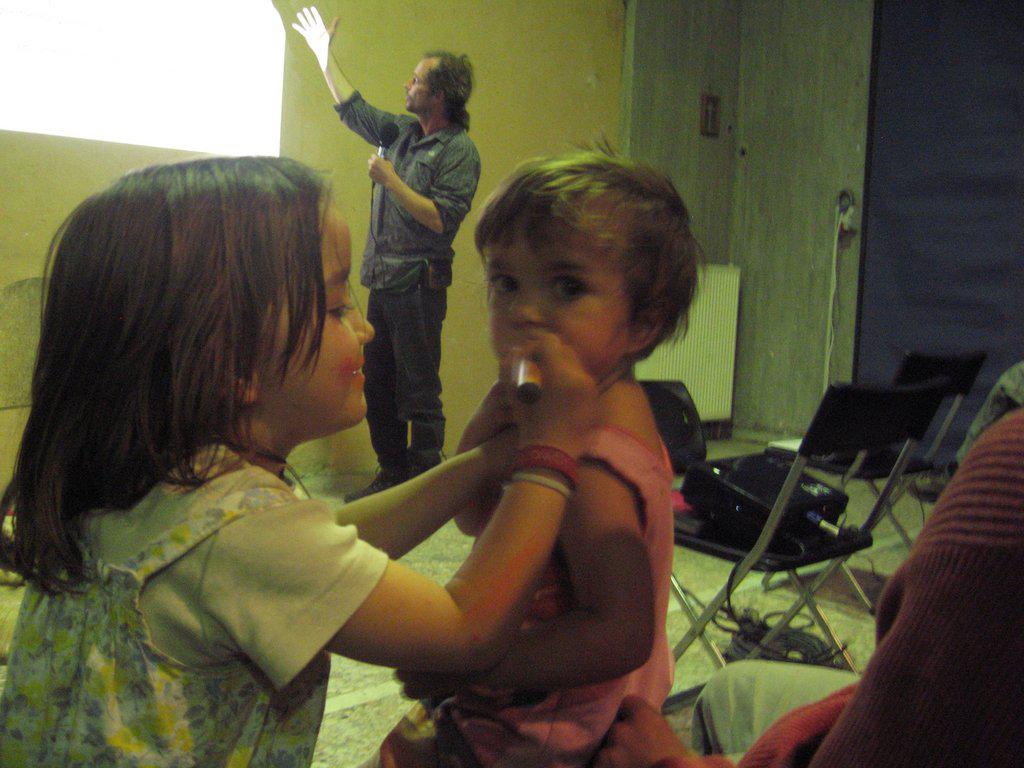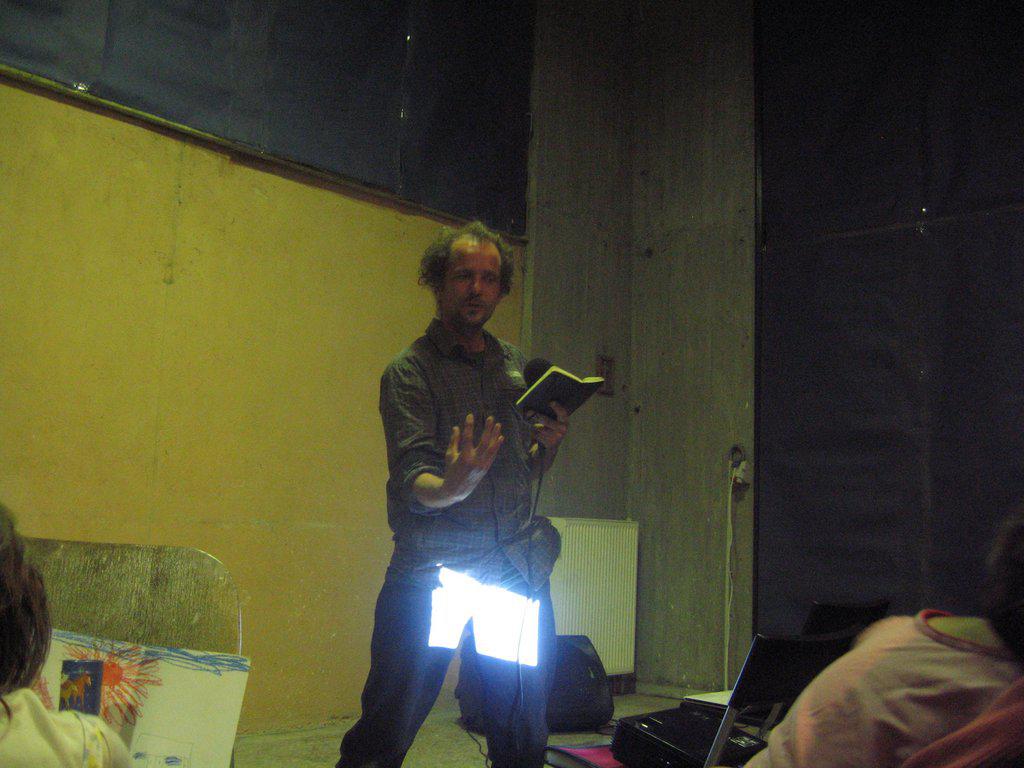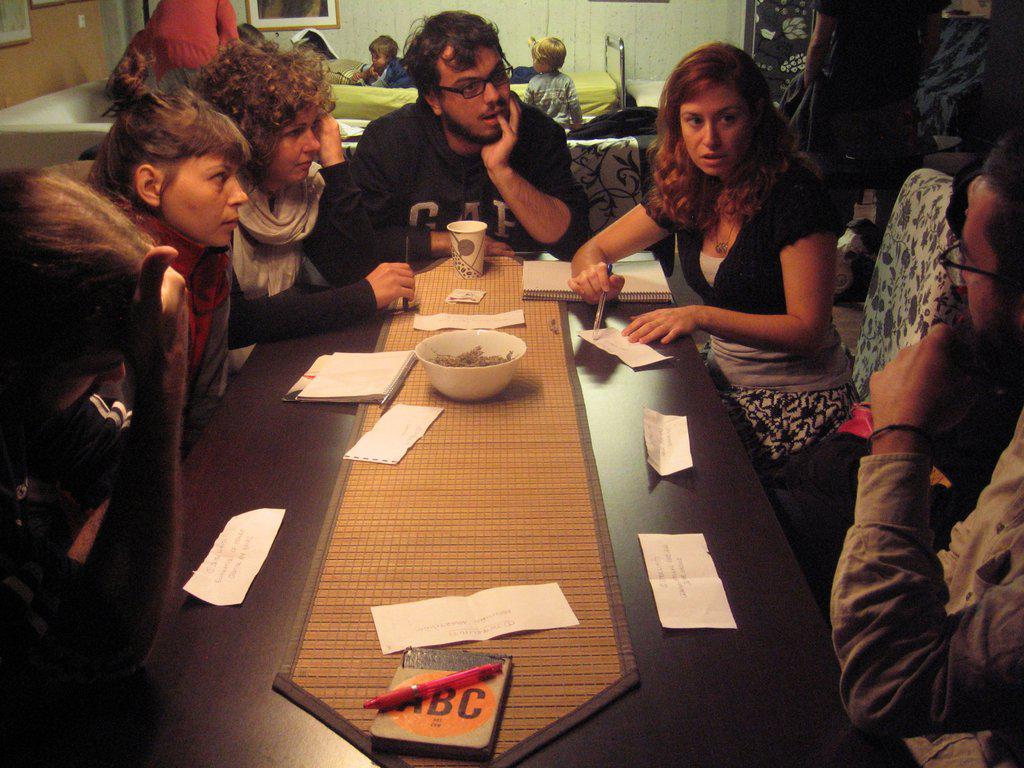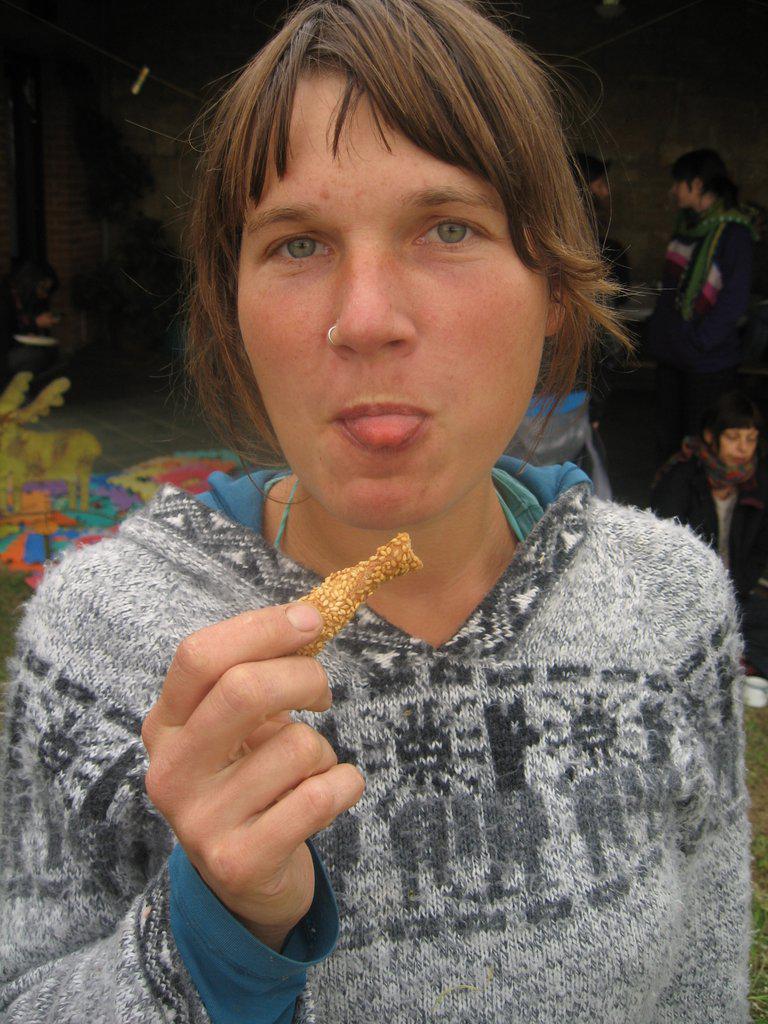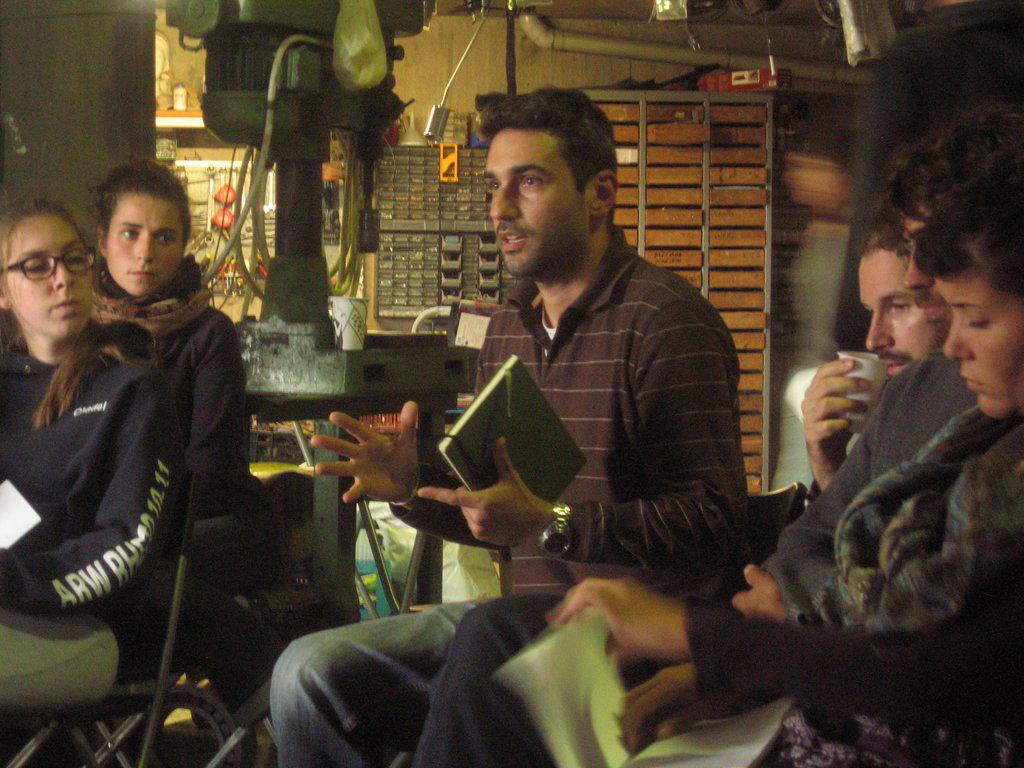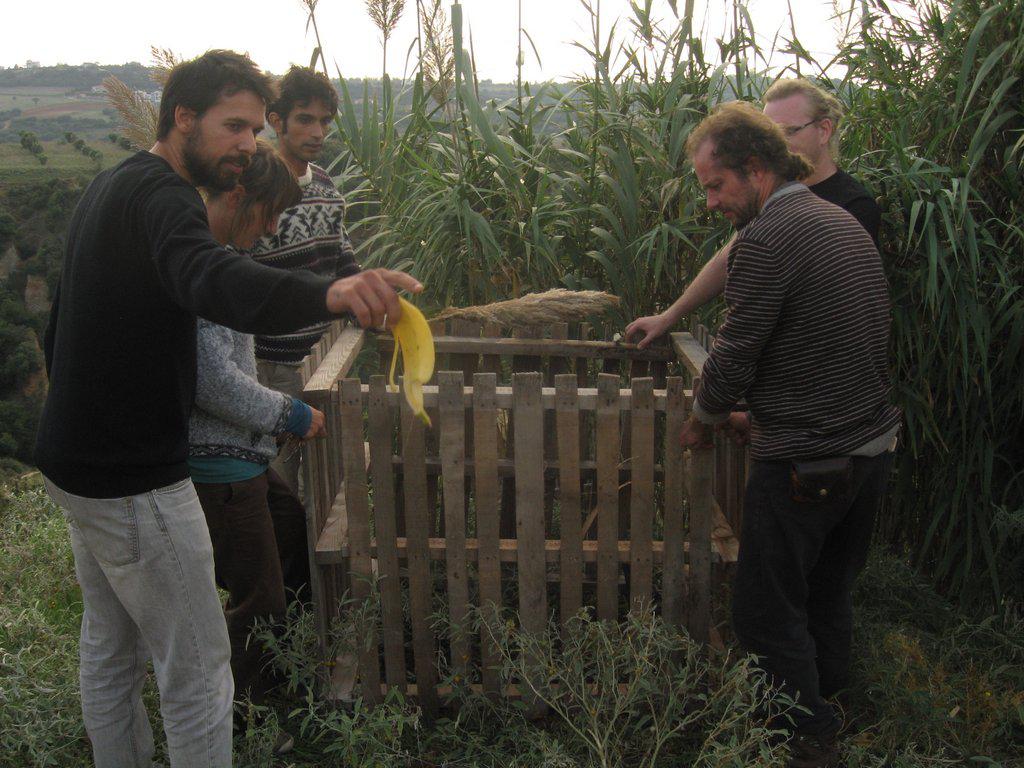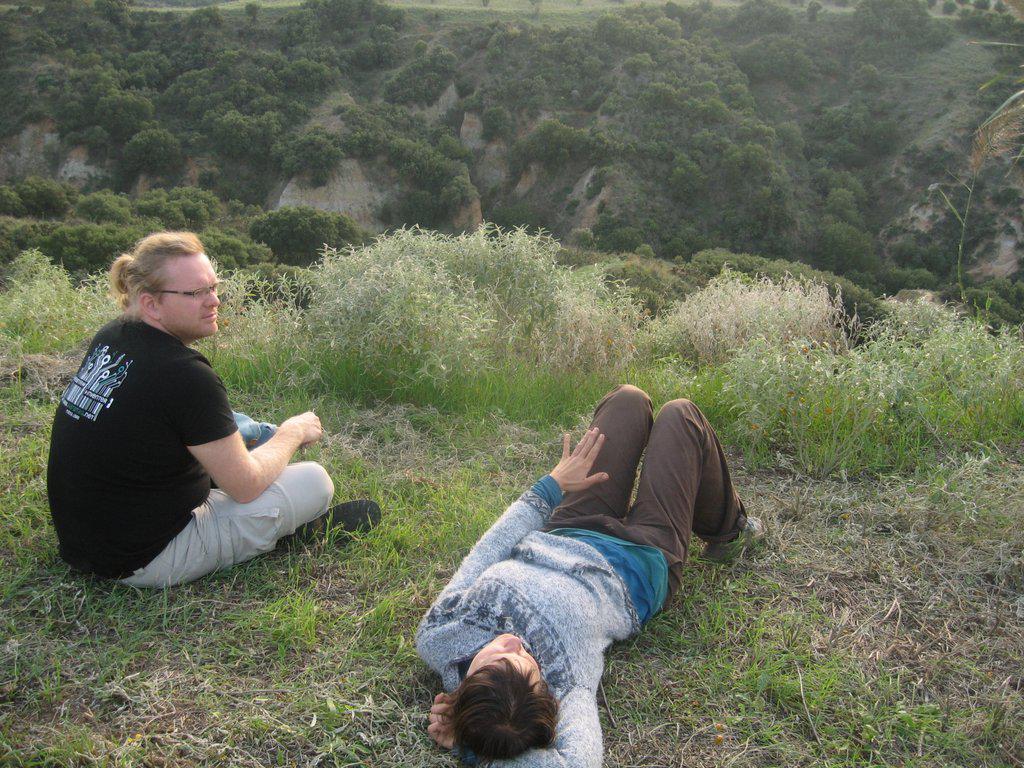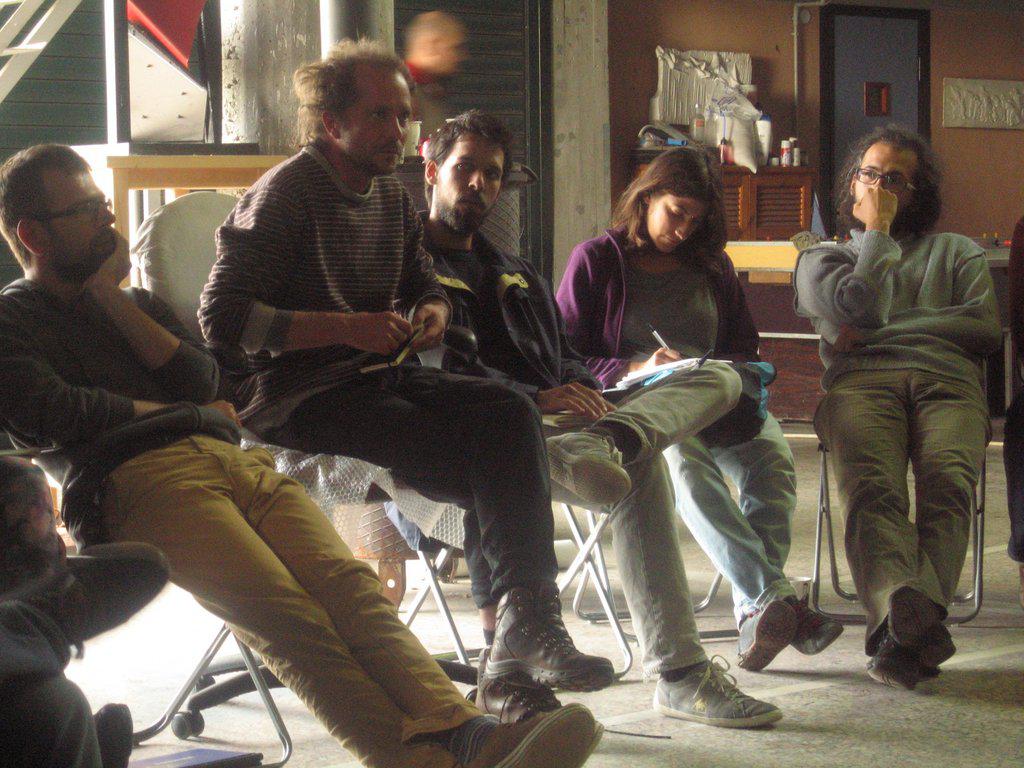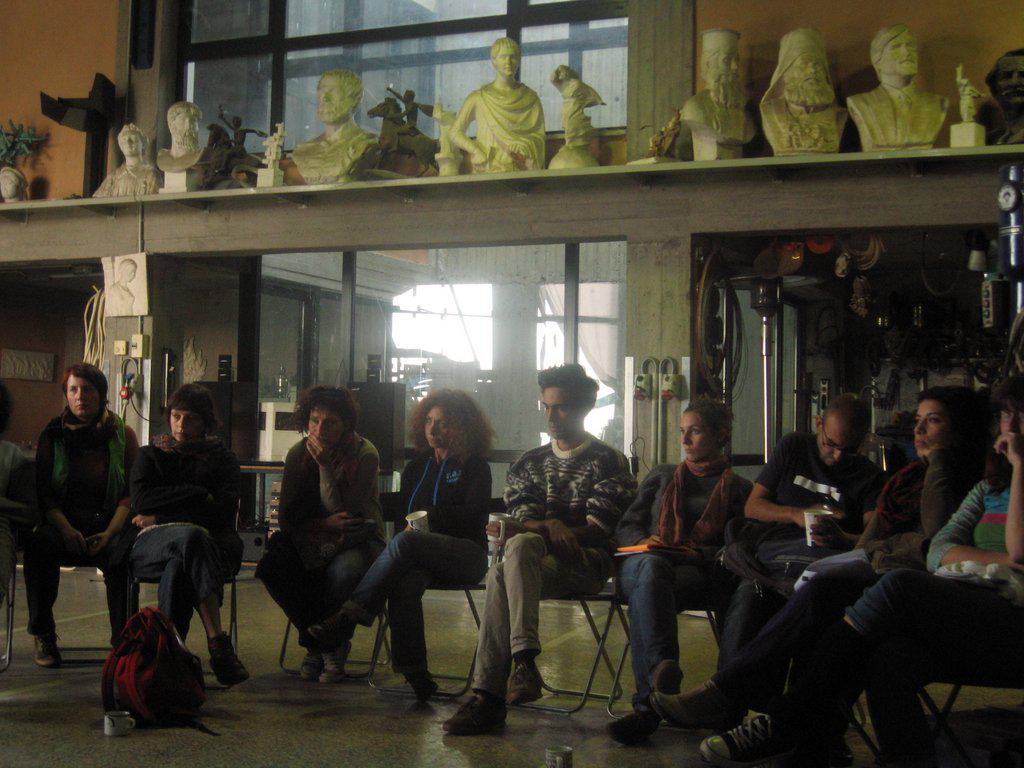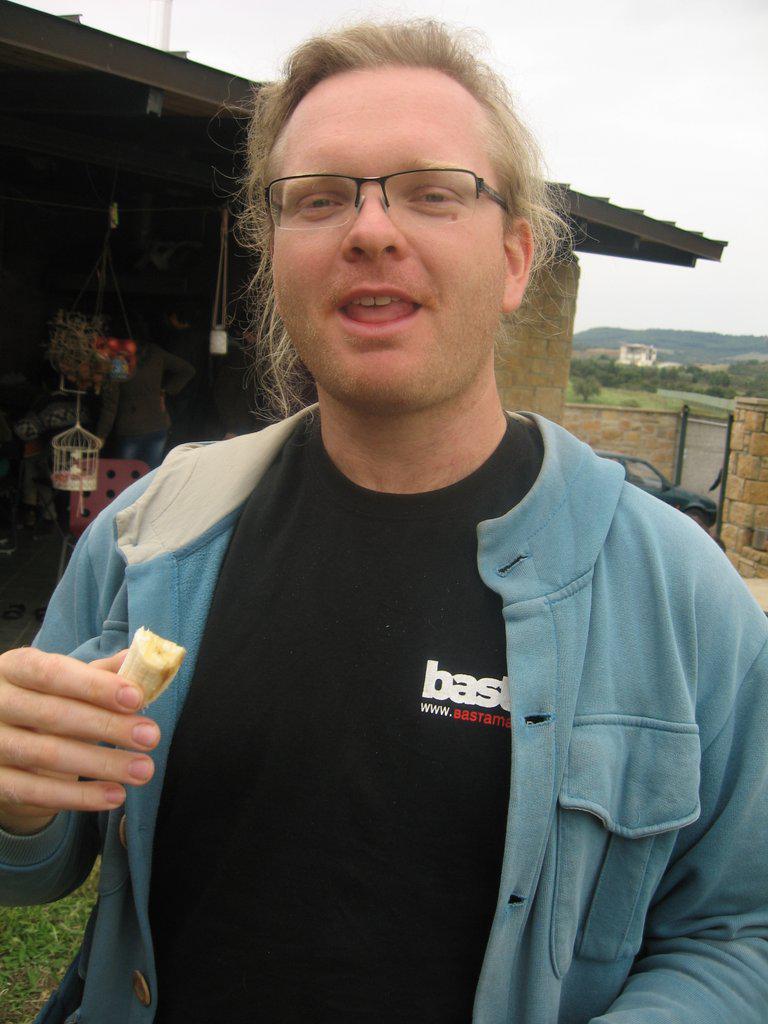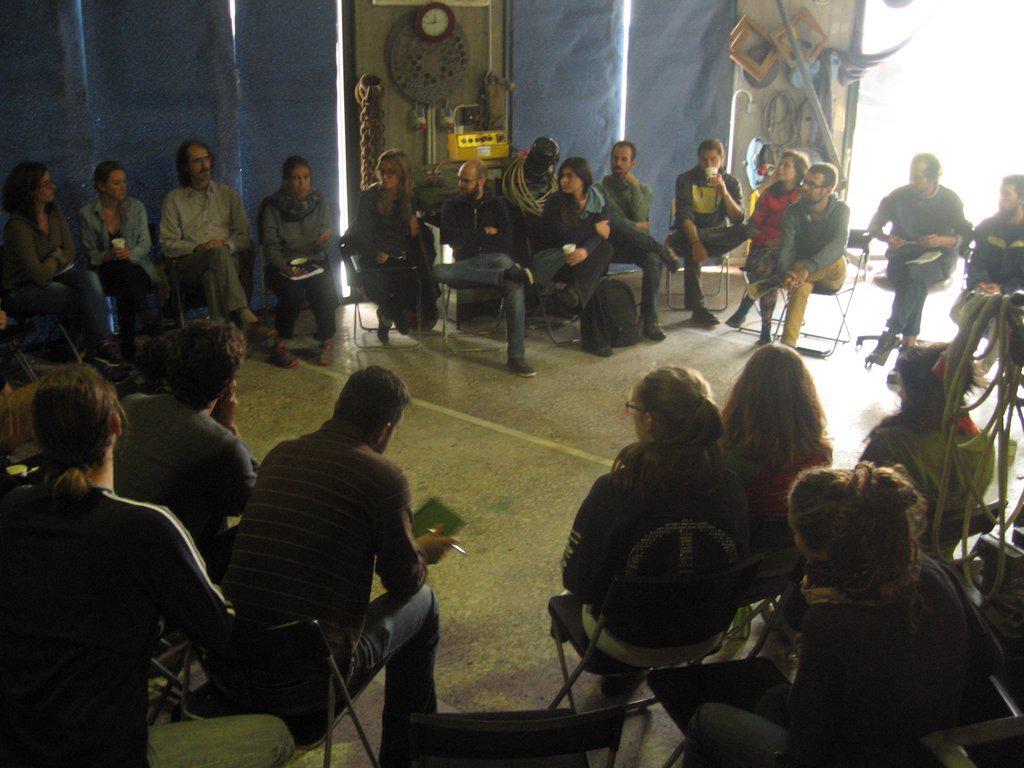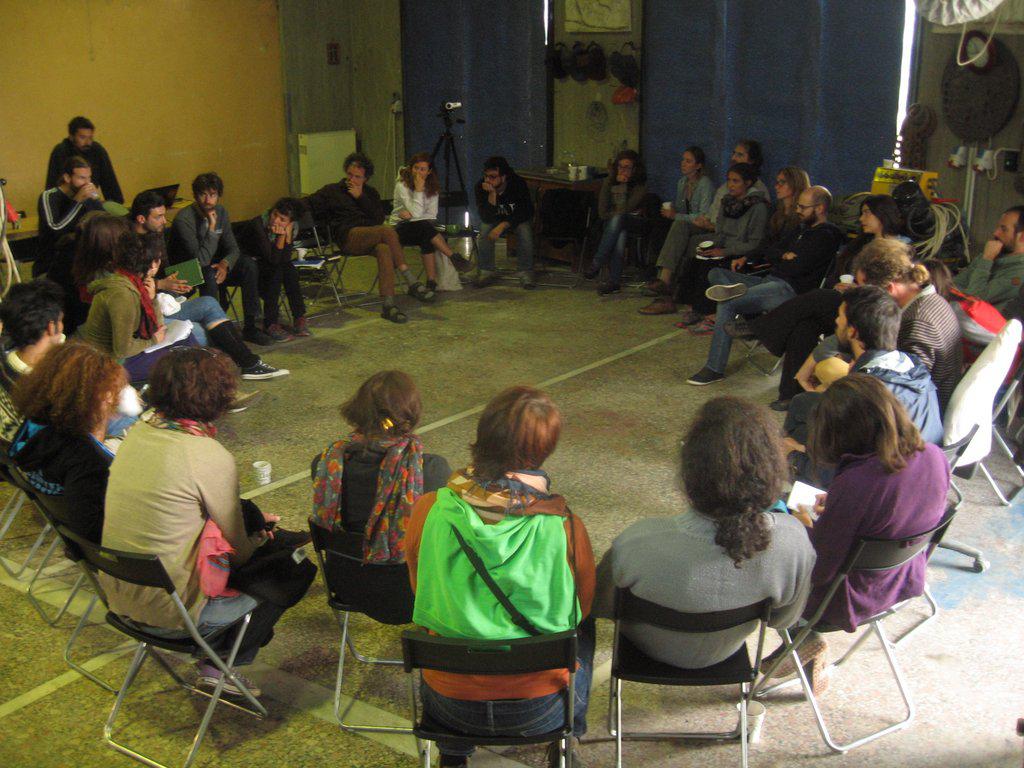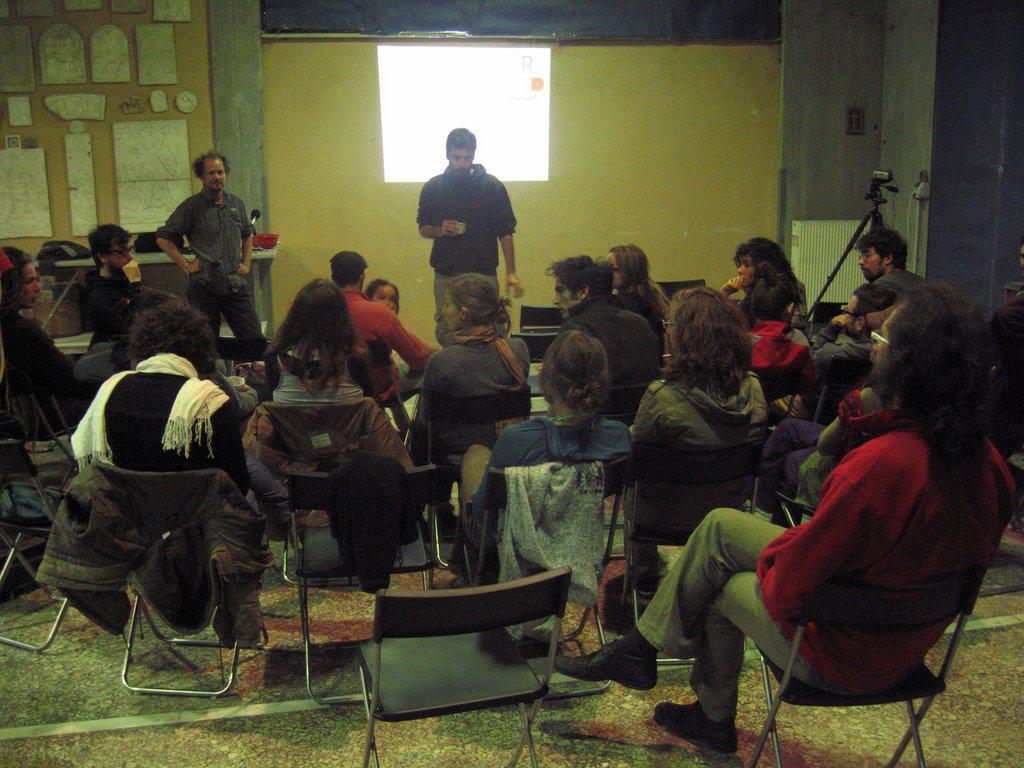Literature:
Abraham Maslow (1943). A Theory of Human Motivation. Psychological Review 50, pp. 370-396.
André Gorz (1999). Reclaiming Work: Beyond the Wage-Based Society.
Arturo Escobar (2011). Encountering development: The Making and Unmaking of the Third World.
Barbara Starfield: various work on the importance of primary health care in preventing diseases at: http://www.globalfamilydoctor.com/InternationalIssues/BarbaraStarfield.aspx
bell hooks (2009). Teaching critical thinking: Practical Wisdom.
Boaventura de Sousa Santos (2014). Epistemologies of the South: Justice against Epistemicide.
Cornelius Castoriadis (1975). L'institution imaginaire de la société / The Imaginary Institution of Society .
Dana Meadows et al. (1972). Limits to Growth.
David Bollier: various works about the Commons at: http://bollier.org
Edward L. Glaeser (2012). Triumph of the City: How Our Greatest Invention Makes Us Richer, Smarter, Greener, Healthier and Happier.
Ernst F. Schumacher (1973). Small is beautiful – economics as people mattered.
François Schneider, Filka Sekulova (2014). Open-localism. Working paper available at: http://co-munity.net/system/files/3750.pdf
Frantz Fanon (post-colonial thinking): (1952) Black Skin, White Masks; (1961) The Wretched of the Earth .
Georgescu-Roegen (1979). La decróissance: Entropie - Écologie - Économie. Available at: http://classiques.uqac.ca/contemporains/georgescu_roegen_nicolas/decroissance/decroissance.html
Hakim Bey (1985). Temporary Autonomous Zone, Ontological Anarchy, Poetic Terrorism. Available at: http://hermetic.com/bey/taz_cont.html
Herman Daly (1997). Steady-state economics.
Ivan Illich: (1971) Deschooling Society; (1973) Tools for Conviviality; (1976) Medical Nemesis.
J.A. Muir Gray (2001). The resourceful patient (empowering people on health)
Julian Tudor Hart (1971). The Inverse Care Law. The Lancet 297: 405–412.
Karl Polanyi (1944). The Great Transformation: The Political and Economic Origins of Our Time.
Manfred Max-Neef: (1981) From the Outside Looking In: Experiences in Barefoot Economics; (1991) Human Scale Development: Conception, Application And Further Reflections. Available at: http://www.area-net.org/fileadmin/user_upload/papers/Max-neef_Human_Scale_development.pdf
Nassim Taleb: (2007) The Black Swan: The Impact of the Highly Improbable; (2010) Antifragile: Things That Gain from Disorder.
Robert Neuwirth (2005). Shadow City.
Robert S. Mendelsohn (1987). How to raise a healthy child in spite of your doctor.
Rostow, W. W. (1960). The Stages of Economic Growth: A Non-Communist Manifesto. Cambridge University Press.
Vicente Navarro (2007). Neoliberalism, Globalization and Inequalities: Consequences for Health and Quality of Life. Other works at: http://www.jhsph.edu/faculty/directory/profile/1041/vicente-navarro
Videira, Schneider, Sekulova, Kallis (2014). Improving understanding on degrowth pathways: An exploratory study using collaborative causal models. Futures 55, pp. 58-77.
Walter Mignolo (2009). Epistemic Disobedience, Independent Thought and De-Colonial Freedom. Available at: http://waltermignolo.com/wp-content/uploads/2013/03/epistemicdisobedience-2.pdf
Movies/documentaries:
Life after growth - economics for everyone (www.vimeo.com/10871269)
Growth is not enough (https://www.youtube.com/watch?v=2_AMEAnWyRk)
Others:
BASE EU project – www.base-adaptation.eu
CCIAM – Climate change impacts adaptation & modelling – www.sim.ul.pt/cciam
?? COMPASS - Assessment of Experiences with Participatory Approaches In CBNRM(http://pdf.usaid.gov/pdf_docs/Pnadb204.pdf)
?? “Aluna” project by Adriana Herrera & Willy Castellanos (http://www.alunartfoundation.com/)
TTT – Train the Trainer
Introduction
Examples to what could be done to train people in degrowth?
“Teach” people that are not so open to the subject/not so open to participatory methods in general without imposing “degrowth ideals” and rather make people think about the various dimensions of degrowth, how to envision a different world (open perspectives on different ways of organizing society)
Susanne:www.endlich-wachstum.de
PRACTICAL EXAMPLE (by Christina Sakali):
1) Presenting case-studies from own countries and thinking about them in a degrowth perspective
Exercise: Self-managed factory in Greece – employers left the factory because of the crisis, and workers that lost jobs decided to run the factory themselves
VIO.ME (BIO.ME - greek)
Main activity: previously producing construction materials
Present: the factory is not legal (no property rights) – problems with security, they have to guard everything 24/7; they can’t produce construction materials, they started to produce natural cleaning products; they sell them locally and some externally. To make them legal, they are trying to construct a social enterprise. There is no legal framework to legalize self-managed enterprises. Work is collective and decisions too, 300€/month. 40-50 people before factory closed, 22 people now.
Think of this in a degrowth perspective – Is this consistent with degrowth? How can it be more consistent with degrowth? Which elements of organization of a enterprise of this type are connected with these dimensions?
- Production & distribution
- Working conditions
- Environmental sustainability
- Relation with community
E.g.: Working conditions group
Degrowth companies – self organized, collective decisions (assemblies), equal salaries.
Problems – 300€ is precarious, how can they earn more money?
To be more degrowth: new legal framework; clarification of property rights – security about the property; resource exchange to complement the salary (e.g. other communitarian projects such as gardens); have some structure inside of them, rotating jobs and recycling jobs (overcoming vested power and interests)
Connection with local community – bring people to the factory with a party (instead of marketing campaign)
Self-organized kindergarten in the factory → fix gender balance problem
Factory is not all occupied; there can be space for co-working or organized industry to complement one another (share factory space by having complementary industries inside the same buildings. This is already common in some chemical industries, it could be an inspiration)
Use previous knowledge to new activities but recycled in some way to be more environmental-friendly (not abandon it)
Search for autonomy in food and electricity, since they have space (greenhouses, renewable energy, rainwater collection)
Feedback to Cristina method:
It could be interesting to pass around photos/action cards – making the presentation more visual
Methodology: first a common case study and various groups in the morning; in the afternoon it could be the same exercise with case studies from other countries. It is motivational to take the exercise until the end, construct a common proposal in the end and having the possibility to give them an action (e.g. proposals can be communicated to the actual people)
INDIVIDUAL CHALLENGE
Subject – methodology – myself (personality)
What I would like to transmit? How would I like to transmit it? Target group?
TTT General discussion
- 3h sessions are good to allow informal breaks
- TTT challenge allow for inspiration of others
- Courses to give the tools for turning degrowth theories in a more concrete thing to “teach”
- Positive exchanging experiences between participants, especially from different countries
- Visit projects that apply somehow degrowth principles
- How to fund courses and also how not to depend on public money
- How to train people from different backgrounds, difficult economic situations, not aware of the problem
- Open debate spaces with different groups of people, in a voluntary basis: communities, public services
- Degrowth trainer is different from a degrowth course organizer (don’t mix roles)
- Difficulty on extracting the essence of the courses (how to connect fragmented information)
- Incorporating contents and methods in the existent teaching opportunities (close the cycle to the mainstream) – insert the degrowth ideals as critical thinking education
- Learning process for the network can also be enriched with teaching experience from many people (how to convey certain issues, experiences from using certain methodologies)
- Not having a topic to focus might be an obstacle to plan a course (degrowth is sparse concept)
Attached are the filled evaluation questionnaires of the GROWL courses and the analysis made by Tó and Kristina.
On the right side you find not only the questionnaires, but also the excels with all the data from the evaluation forms. Unfortunately, I am not able to upload .sav files, so I cannot upload the SPSS equivalents here. Anyways, you find attached the reports that I hope are useful to you (especially interesting to the course organizers).
I calculated the average score of each participant and the overall mean from that (=mean of all items). This is the overall satisfaction with the course, you find it right in the beginning of the report.
The common items that were used in all forms was age, sex, and country, so I put diagrams of those in each report (you find the specific numbers for age in the diagram itself).
NOTES:
- We miss the courses of Belgium and Leipzig, they have been forgotten/neglected and never came to exist. If the local course organizers have some written feedback from the participants, this could provide a nice replacement.
- France and Berlin have been calculated, but Berlin stats are not representative
- For the overall evaluation it would make more sense to calculate the numbers (sex, age, country) from the participants lists, because not everyone filled out the forms. That's why I didnt calculate the statistics for all of the forms together, cause they would be "wrong" anyways.
- This document and its attachments are in a public area, to serve as reference for future trainers or anyone interested in analysing the results of the GROWL partnership international courses
Install Read Only Mode module (https://www.drupal.org/project/readonlymode). In this way, people still have access to the content, but there is no risk that the content is changed while you make the changes.
1. Clone your live site foo.com to upc.foo.com in the existing, old platform
2. Migrate upc.foo.com to the new platform (the new version of Drupal), without renaming it, and make sure it works
3. Update modules with "drush pm-update --no-core --no-backup"
4. Test everything in the updated upc.foo.com to make sure it works fine
5. Clone your live site foo.com to old.foo.com (for recovery purposes)
6. Migrate the updated upc.foo.com to foo.com (this effectively renames the site)
